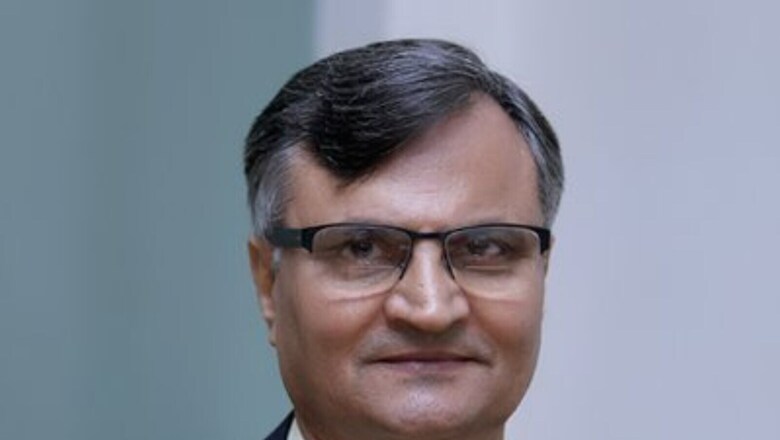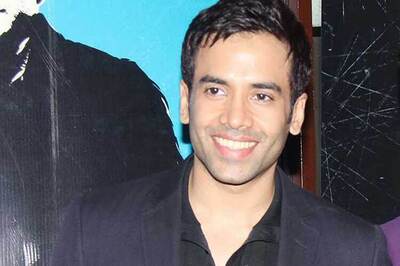
views
A race in politics to give more “freebies” could trigger the collapse of the economy, NITI Aayog member and renowned agricultural economist Professor Ramesh Chand told CNN-News18 in the thick of a swirling debate on the topic across the country.
All kinds of freebies are not bad and some are needed, he said in an exclusive interview. “When freebies cross some limits, when freebies are given to non-deserving people, when freebies are not targeted, when freebies start affecting fiscal health, and when freebies start doing more harm to growth than good, then I think we need to draw a line — what amount of freebie should be given, to whom it should be given, and how much should be given,” said Chand.
He pointed out that growth is very important for a country like India, with more than 20% of the population living in poverty, apart from there being problems of unemployment, and poor infrastructure.
“So, if we keep giving excess money under freebies, then all these things will be affected. We will not be able to achieve good growth, we will not be able to make investments in infrastructure, and we will not be able to develop our productive sector. So, in a developing country like India, between freebies and growth, we should first see that targeted freebies are allowed,” he said. The rest of the freebies, he added, should not come at the cost of growth.
Giving examples, Chand said, “We are seeing in agriculture that now we are giving so much power subsidy, fertiliser subsidy, and many other things. As a result, many states are reducing expenditure on rural infrastructure, and on rural R&D…If you take the example of agriculture, suppose we are giving some freebies, in some cases, it also has some positive impact. But, that positive impact is much smaller than the positive impact of infrastructure. For instance, if I spend one rupee on infrastructure, I will keep getting returns for the next forty years. But in the case of freebies, the return will be only for that year.”
There was a clear distinction earlier of merit subsidy vs non-merit subsidy, he said, maintaining that keeping a balance is important.
“If we start a race for who can give more freebies, I think that can lead to a situation of the collapse of the economy,” the NITI Aayog member said.
Coming to the issue of power subsidies, Chand said there are different ways to give it. “But if you are keeping power totally free, then it has many undesirable consequences. I can do some calculations about how much irrigation is needed for wheat crops: say five irrigations are needed for wheat crops. Then, when we are working out subsidies, for up to five irrigations, nothing will be charged, but if there is a power consumption beyond five irrigations, then that power will be charged. This is one way,” he said.
Similarly, he said, if one kind of fertiliser is subsidised more, then its usage will become skewed. “There will be no incentive to promote efficiency. So, again, I will say the designing of freebies is very very important. We can design freebies in a much better way and with much fewer resources so that the goal of efficiency is not affected, the goal of sustainability is not affected,” he added.
A wealthy farmer with more than 15 or 20 acres of land should not be getting the same kind of subsidies as a marginal farmer, said Chand.
The NITI Aayog member, who had backed the Narendra Modi government’s three contentious farm laws that sparked protests in parts of the country and were eventually rolled back, also spoke about them and the issue of “doubling farmers’ income”.
“You see when we did the calculation of doubling farmers’ income, we took into account how much increase in productivity is possible, how much technological change is possible, how much gain because of irrigation is possible. Then, we also calculated how much gain is possible because of reform in the agriculture market, reducing the middlemen’s margin, making prices have higher price realisation,” he said. “So that exact figure I do not recall, but there was some calculation that farmers are likely to get benefits of 10% to 15% higher prices which would translate into a 20% increase in their income. Since the farm laws are withdrawn, the kind of competition we were expecting to come into the agriculture sector, cutting off the unnecessary intermediaries, intermediation…so those kinds of things in some states are happening. But for the country as a whole, since those kinds of things are not happening, what I said was to the extent we had visualised that this much increase will happen because of changes in the APMC Act, because of the coming of private sector investment in agriculture, food processing, etc, that will have a setback. So, I stand by that even now.”
Some states are inviting the private sector in a big way, including Andhra Pradesh, which he had visited, Chand said, adding that such areas will not face reversals, but others are going to be deprived of this gain.
“As you know, our Prime Minister always has a big target in mind, a transformative target in mind. So when he gave this slogan (of doubling farmers’ income), he channelised the energy of the country in that direction. Before that slogan, we were always talking of an increase in production, more production, more production. But after he gave this call, the focus of the ministry and other people shifted to looking into income as an indicator of the progress of the agriculture sector. So now whatever way you may be talking — increase in yield, new variety— the question asked is how much will it add to the income of the farmers,” he said. “So, when this ambitious target of doubling farmers’ income was given, you will just find that the situation in these five years, the gain in income in these five years, will definitely be much higher than what it was in any of the previous five years. So we will see to it that we may not end up (because of farm laws’ withdrawal), exactly doubling income everywhere, but in some states, we will succeed in doubling farmers’ income, and in some states, we will be close to it, but only in some states where there is a technology plateau, no improvement in the market is happening, not much diversification is happening, there gain may not be as anticipated in doubling farmers’ income.”
Prof Chand also said he feels that the free ration scheme Pradhan Mantri Garib Kalyan Yojana can now be phased out. “According to me, this is my personal view, I think this should be the last extension. After that, we should continue with PDS where already we are giving 5 kg per person per month of rice and wheat. We will be going ahead with that, but this additional amount, after these three months, my personal view is that we should not go for it,” he said.
Circling back to the issue of subsidies in the agriculture sector, he said small and marginal farmers deserve support, even more than they are getting right now. “But because the support gets distributed over all kinds of farmers, I think we should develop an exclusion criteria for all kinds of support we are giving under agriculture, except in case of MSP. Whether it is Pradhan Mantri Kisan Nidhi Yojana, whether it is subsidies, we need to develop an exclusion criteria that determines who are the better-off people within the farming community who need not be given this support. And then we should go ahead with it rather than confining it to only one subsidy.” he argued. “So, I will say that we need to develop an exclusion criteria, a sort of creamy layer within farmers. We should see how they are treated and how small and marginal farmers are treated. And if we do that we will be able to look after the interests of small and marginal farmers much better than what we are doing now.”
Read all the Latest News India and Breaking News here


















Comments
0 comment